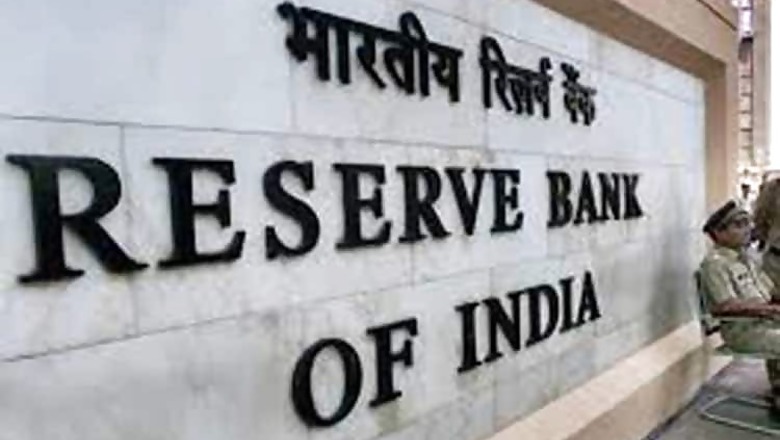
views
Mumbai: The Reserve Bank on Tuesday lowered its inflation projection to 5.8 per cent for January 2016 and said it will aim to bring it down further to 5 per cent by the end of next financial year. RBI had earlier projected inflation at 6 per cent by January.
In its fourth bi-monthly monetary policy review in the current fiscal where it effected a higher-than-expected cut of 0.5 per cent in repo rate to 6.75 per cent, RBI said that "inflation is expected to reach 5.8 per cent in January 2016, a shade lower than the August projection".
Inflation has been trending lower for quite some time with the Consumer Price Index (CPI) based retail inflation falling to a record low of 3.66 per cent in August. The Wholesale Price Index (WPI) based inflation remained in the negative zone at (-)4.95 per cent on cheaper food items and overall fall in commodity prices.
RBI Governor Raghuram Rajan said inflation is likely to go up from September for a few months as favourable base effects would reverse.
A bulk of RBI's conditions for further accommodation for a rate cut have been met, so the target of 6 per cent inflation is likely to be achieved, he said.
"Since our last review (on August 4), the bulk of our conditions for further accommodation have been met. Therefore, the focus should now shift to bringing inflation to around 5 per cent by the end of fiscal 2016-17," said the Bi-monthly Policy Statement for 2015-16.
Further, RBI said outlook for food inflation could improve if increase in sown area translates into higher production. Also, moderate rise in minimum support prices of cereals, downward pressure on sugar and edible oil and benign crude oil prices will keep a downward pressure on prices.
But RBI cautioned that the pass-through of the recent depreciation of the rupee will have to be carefully monitored.
The central bank also said that weakening of global activity suggest that commodity prices will remain contained for a while. The still-low industrial capacity utilisation indicates more domestic demand is needed to substitute for weakening global demand in order that the domestic investment cycle picks up, it said.
"The coming Pay Commission Report could add substantial fiscal stimulus to domestic demand, but the government has reaffirmed its desire to respect its fiscal targets and improve the quality of its spending," the statement said.
RBI said continuing policy implementation, structural reforms and corporate actions leading to higher productivity will be the primary impetus for sustainable growth.
"Furthermore, investment is likely to respond more strongly if there is more certainty about the extent of monetary stimulus in the pipeline, even if transmission is slow."
Therefore, the Reserve Bank has front-loaded policy action by a reduction in the policy rate by 50 basis points, it added.
Given year-ahead projections of inflation, this ensures one year expected Treasury bill real interest rates of about 1.5-2.0 per cent, which is appropriate for this stage of the recovery, it added further.


















Comments
0 comment